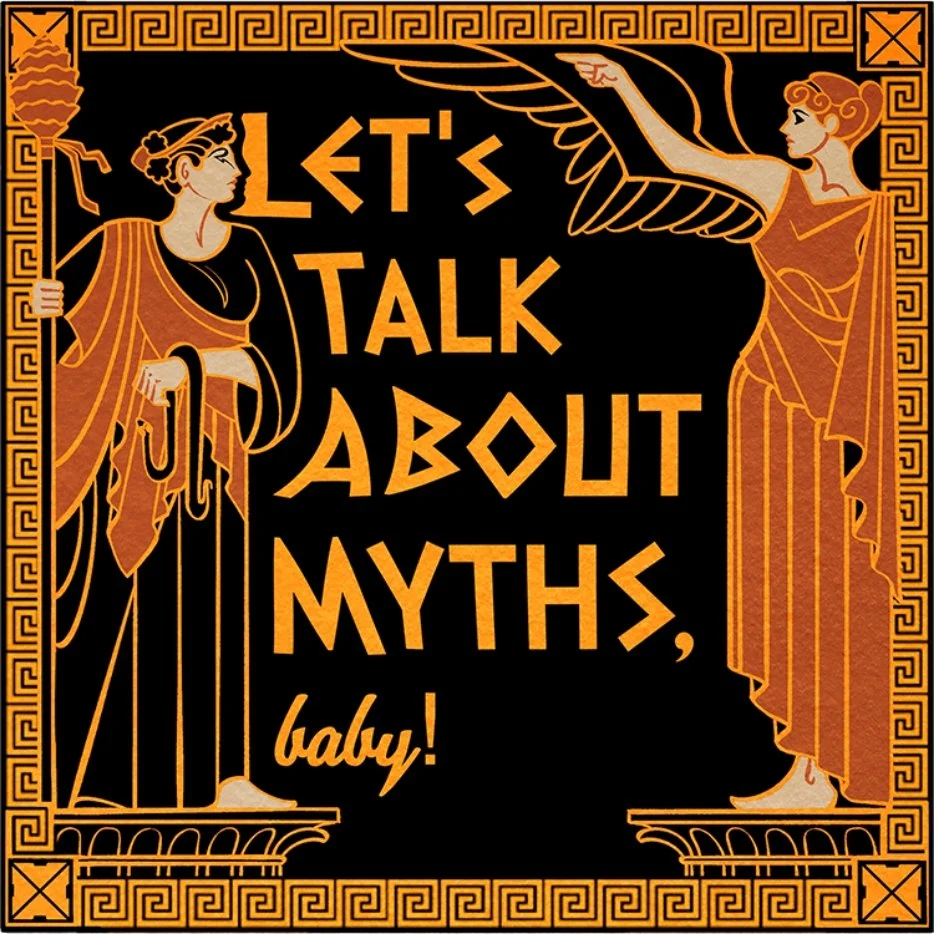
Let's talk about Myths, Baby!
The most entertaining and enraging stories from Greek mythology told casually, contemporarily, and often sarcastically by host Liv Albert.
About the Show
Gods, goddesses, heroes, monsters, and everything in between. Let's Talk About Myths, Baby! issues new episodes on Tuesday and Friday featuring contemporary retellings of your favourite myths, coversations with acclaimed authors and scholars, and readings of ancient epics.
Epic Merchandise
Love the podcast? Find totes, stickers, and more with custom artwork by The Angel Incarnate.

Support the Show
The Let’s Talk About Myths, Baby! team (aka Liv and Michaela) work pretty damn hard to bring you quality free podcast episodes that not only feature some of the wildest and most entertaining (and deeply, deeply patriarchal) stories from Greek myth but also the wider history and culture of the ancient Mediterranean. We love what we do but we hate relying on ads (down with the capitalist overlords!).
If you’d like to help keep Let’s Talk About Myths, Baby! independent and support the short (and receive ad-free content and so much more in return!) consider becoming a Patron on Patreon.
@mythsbabyIris’ Rainbow
Sign up to receive newsletters containing the latest musings, events, and more!


















